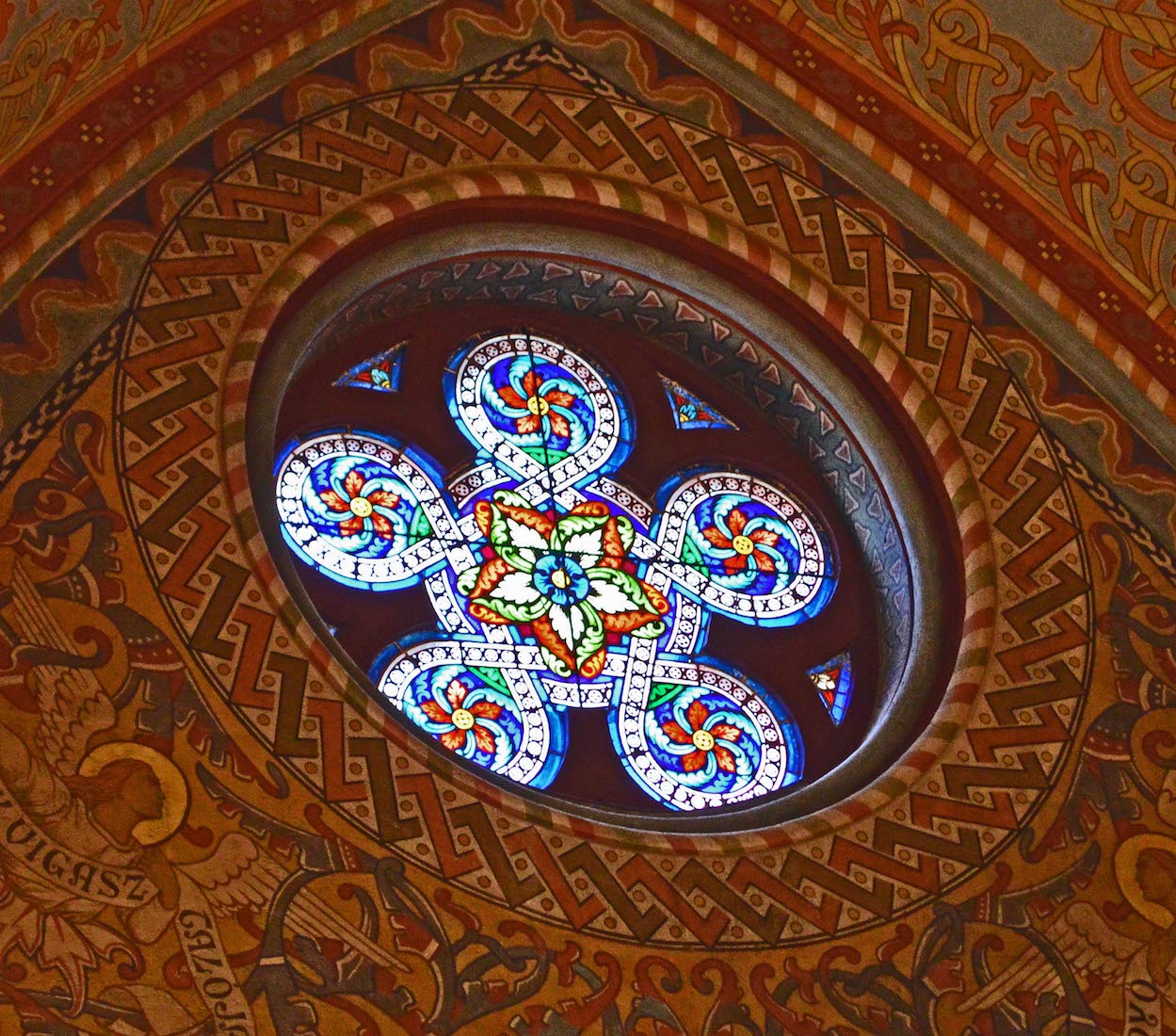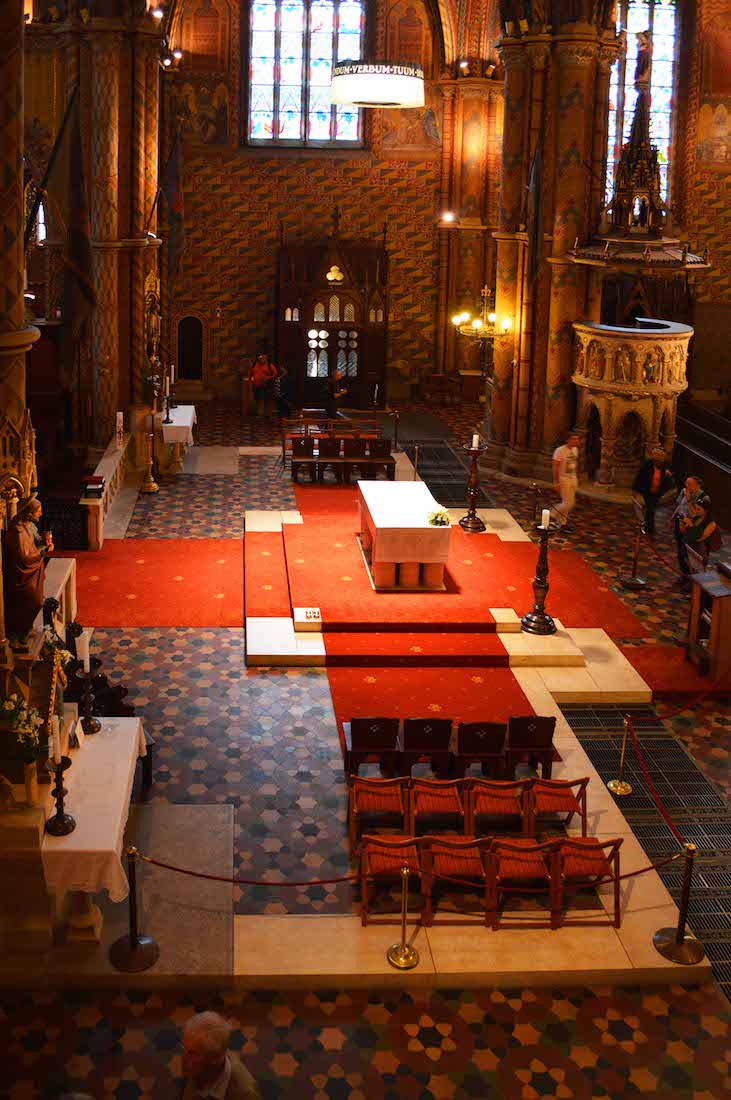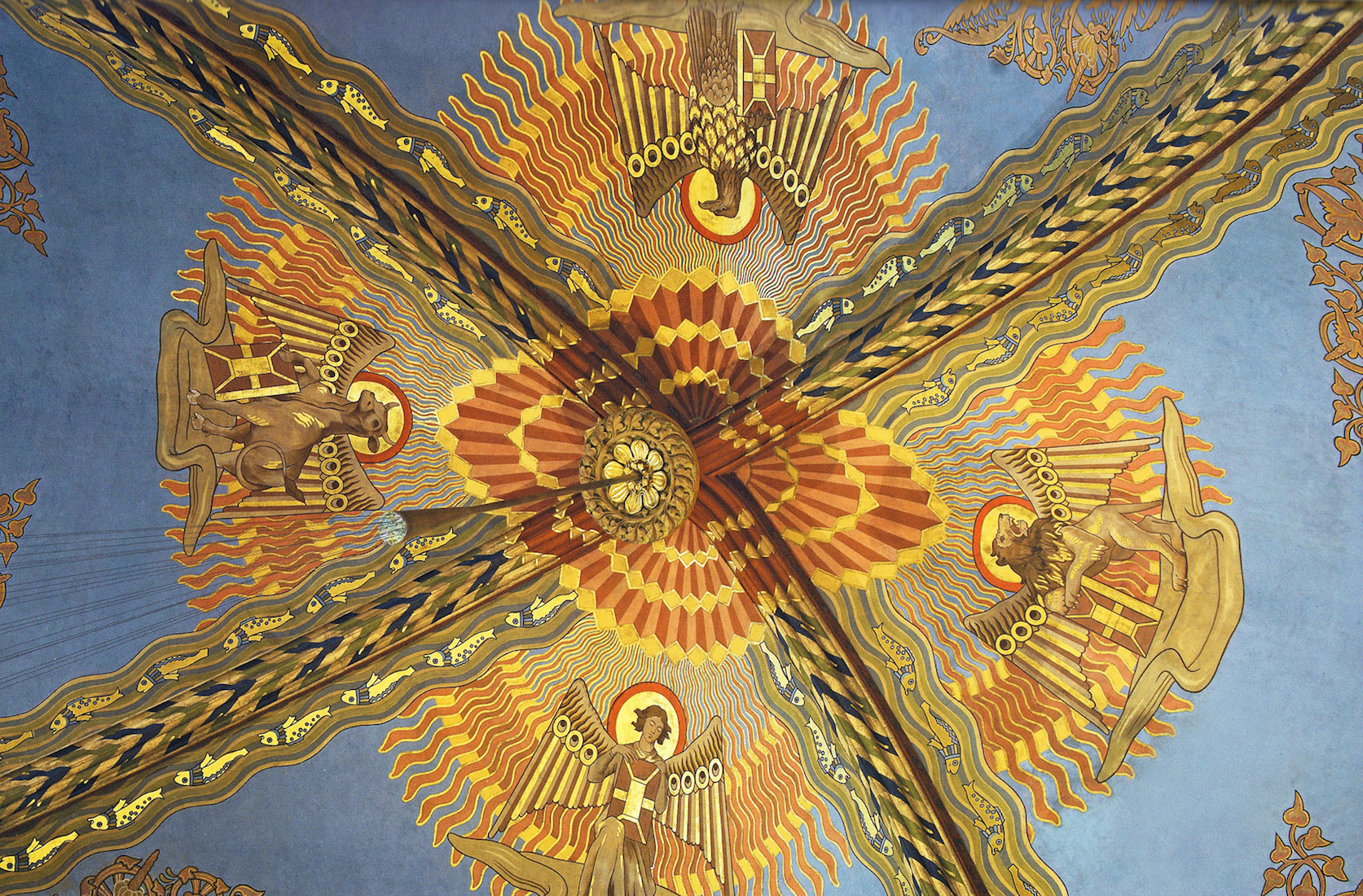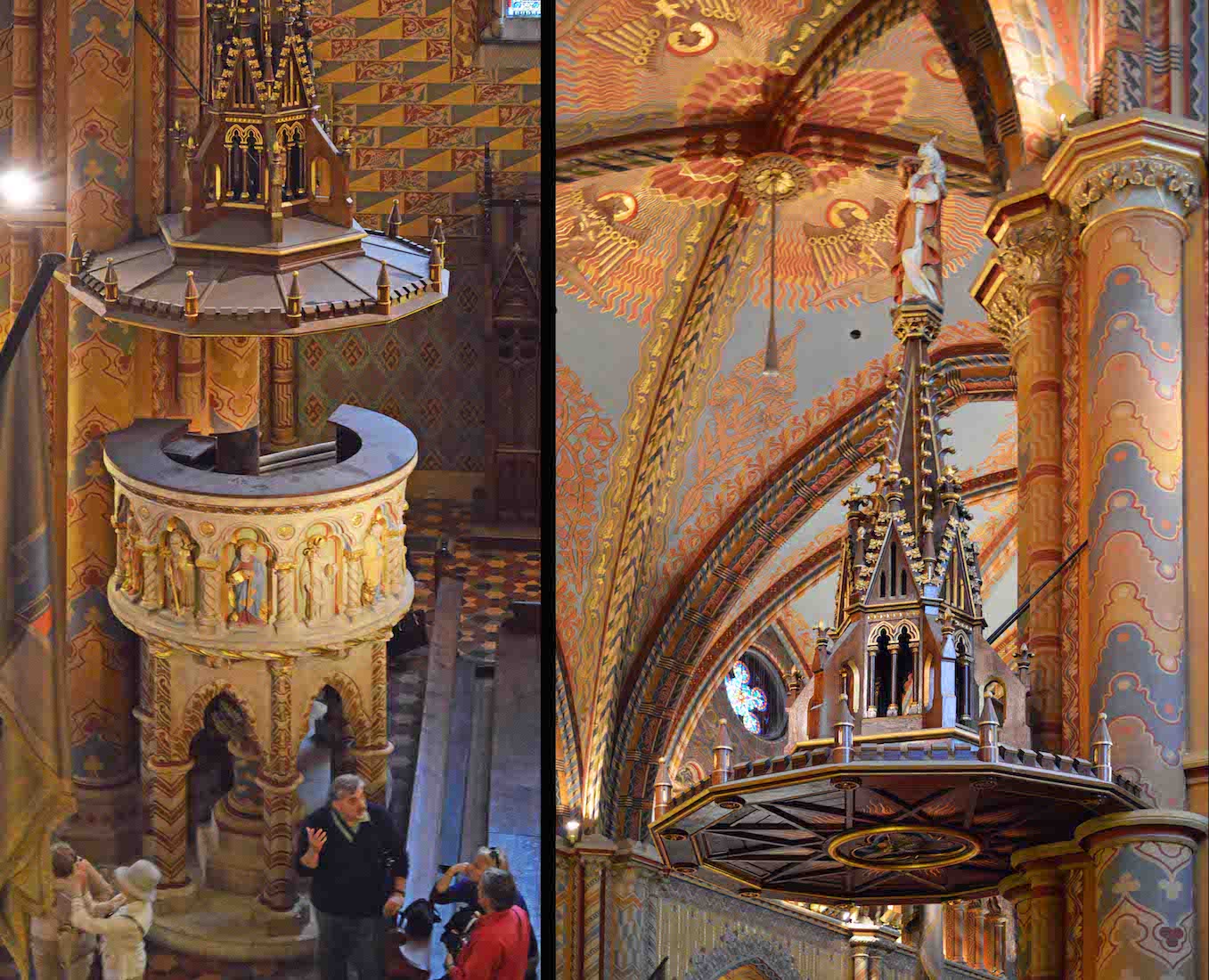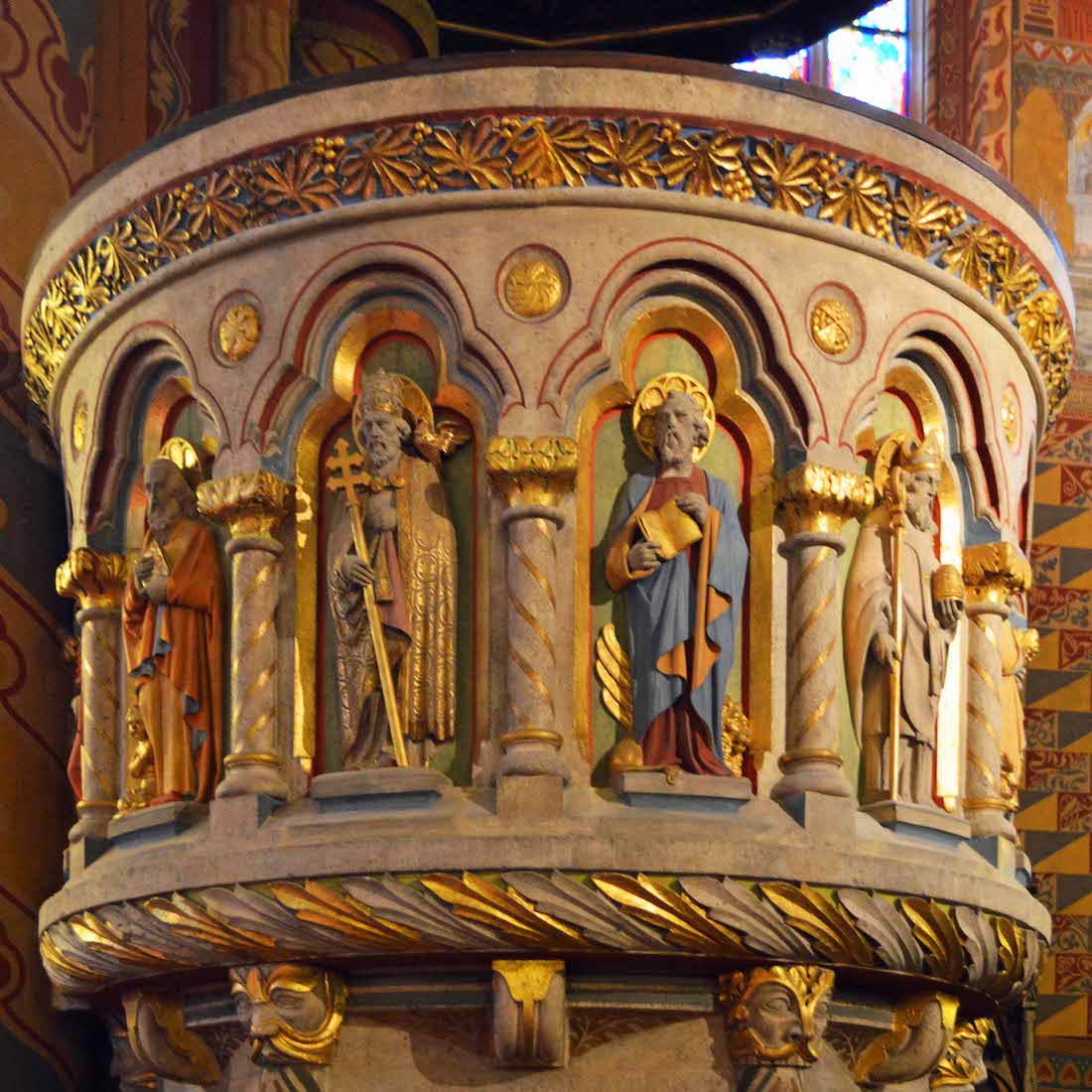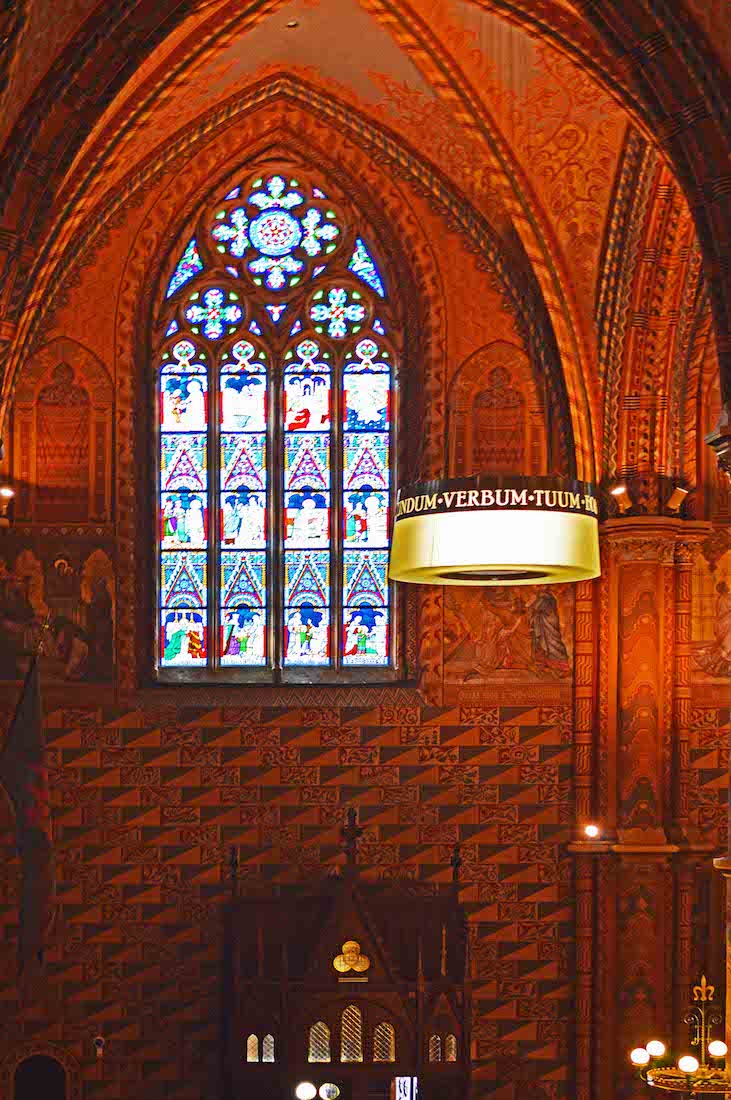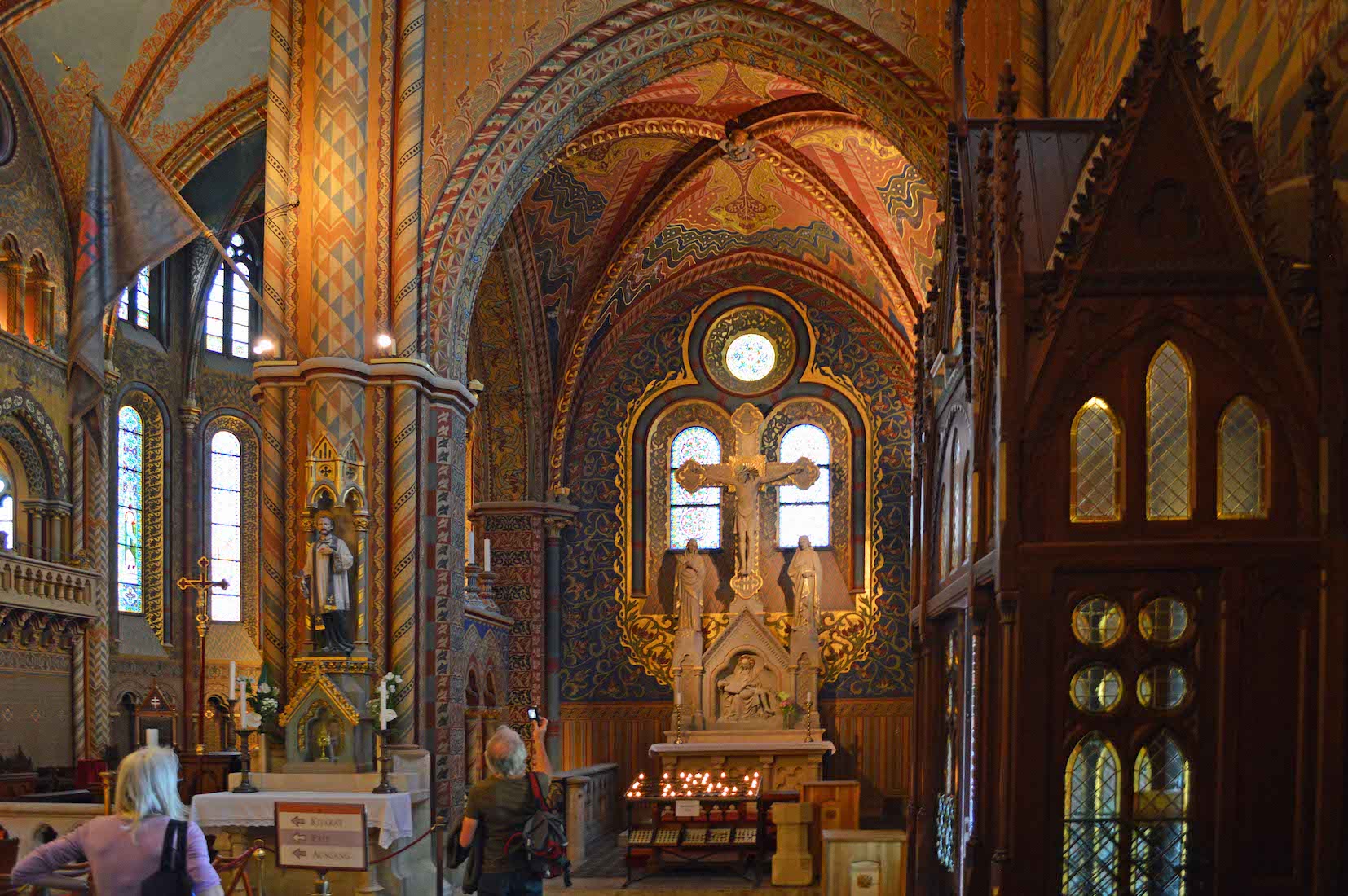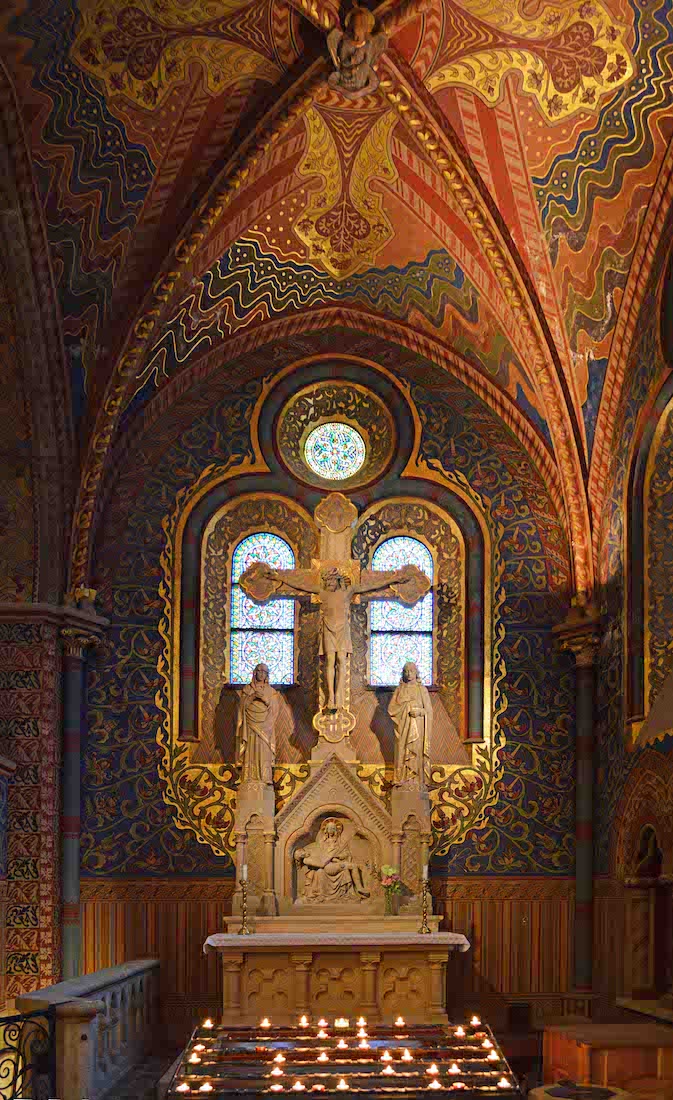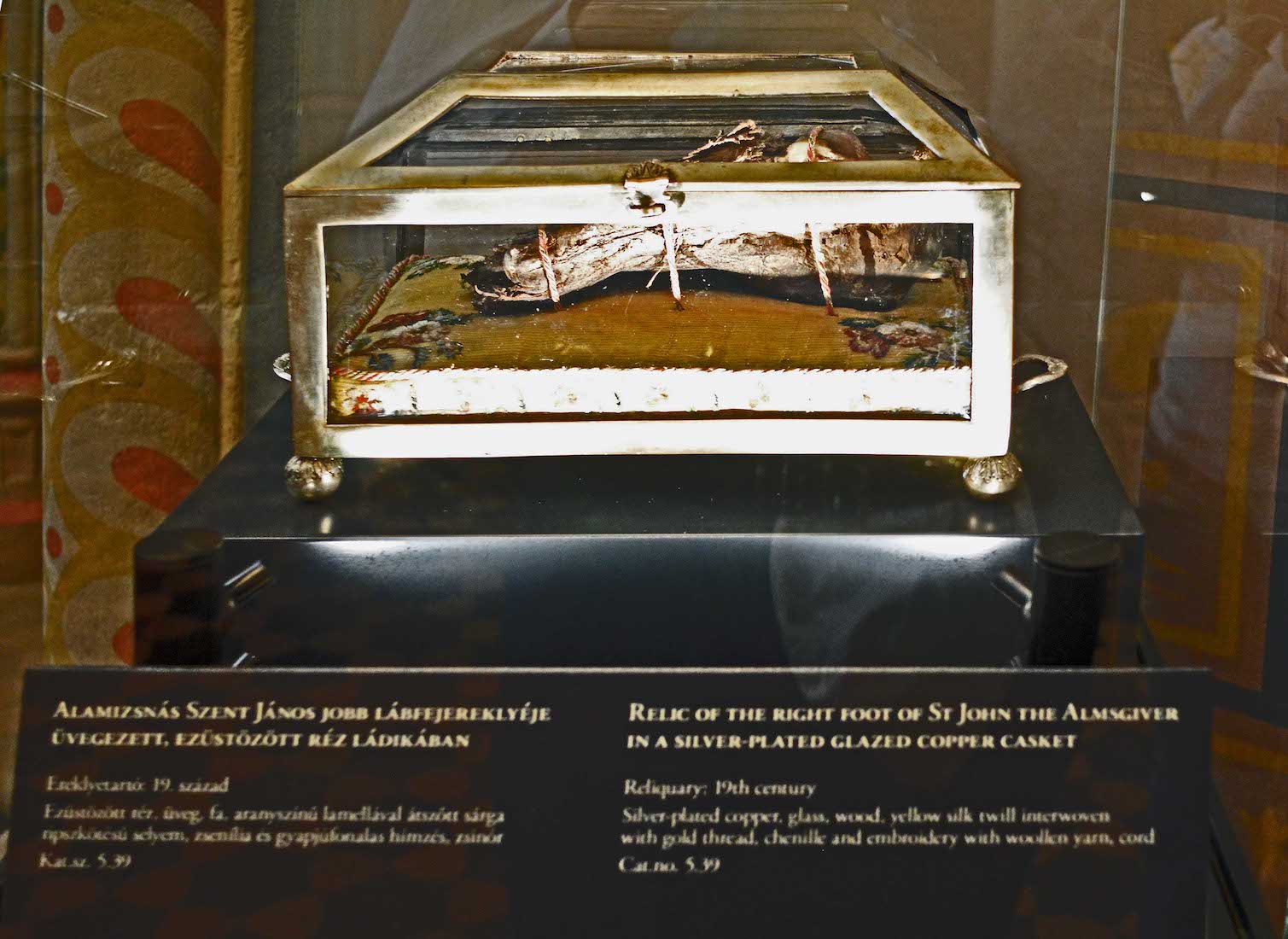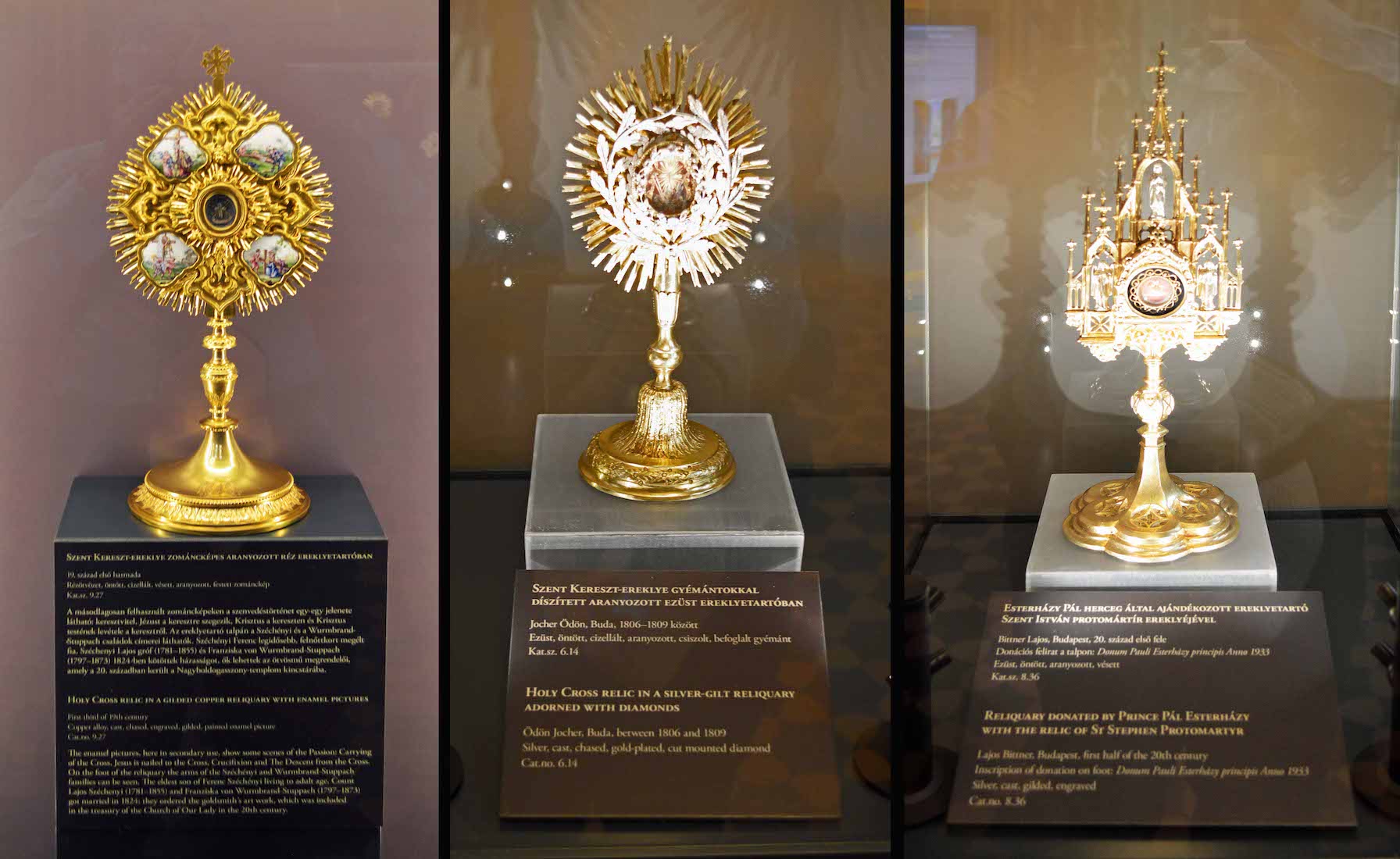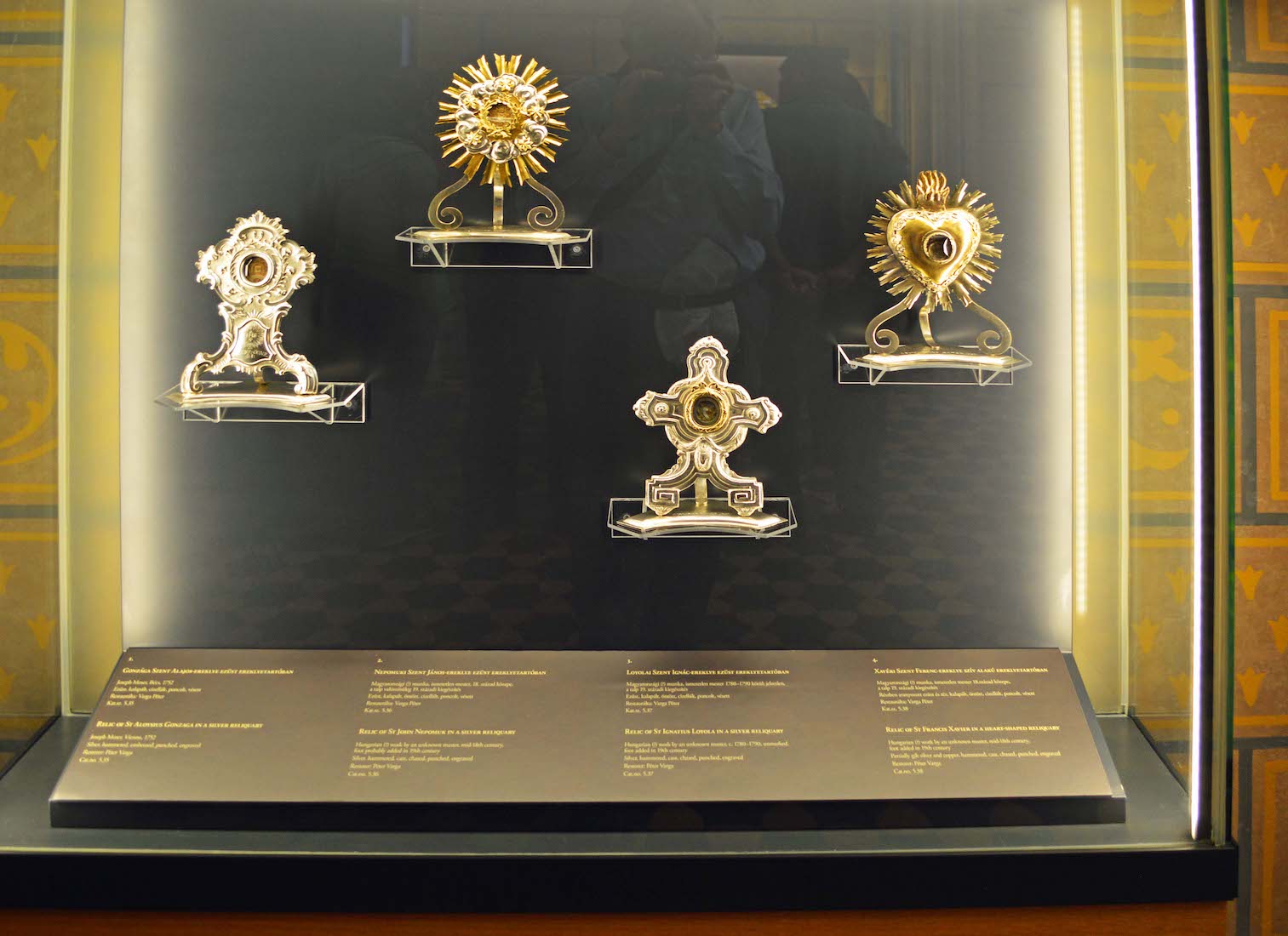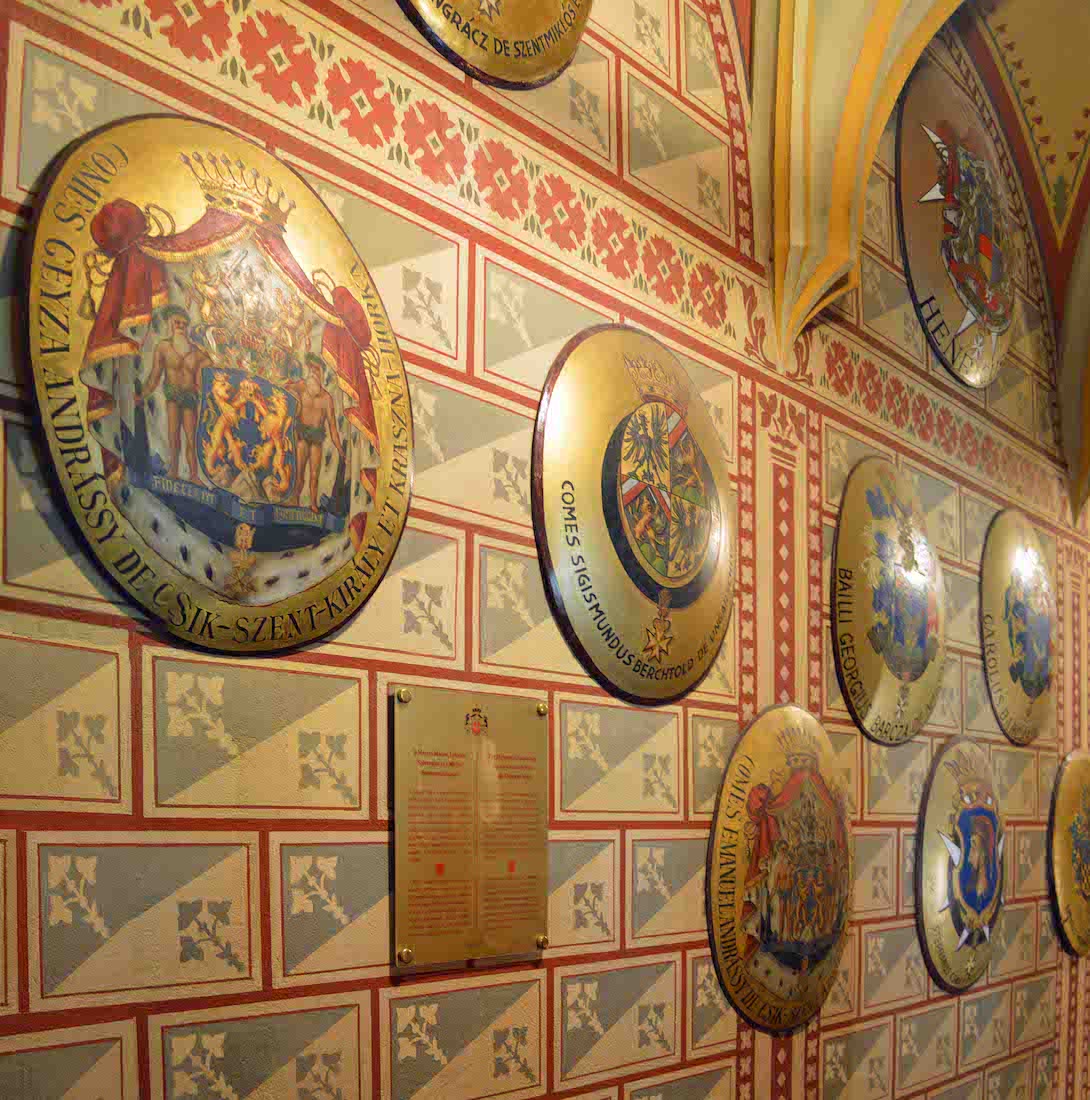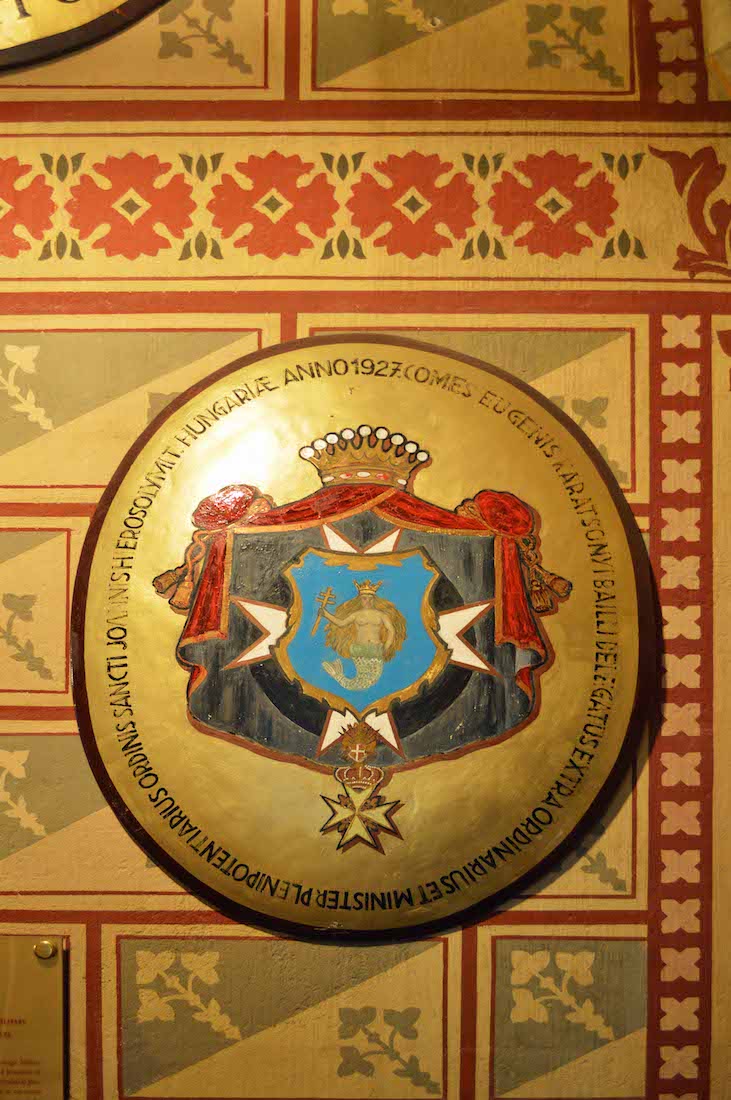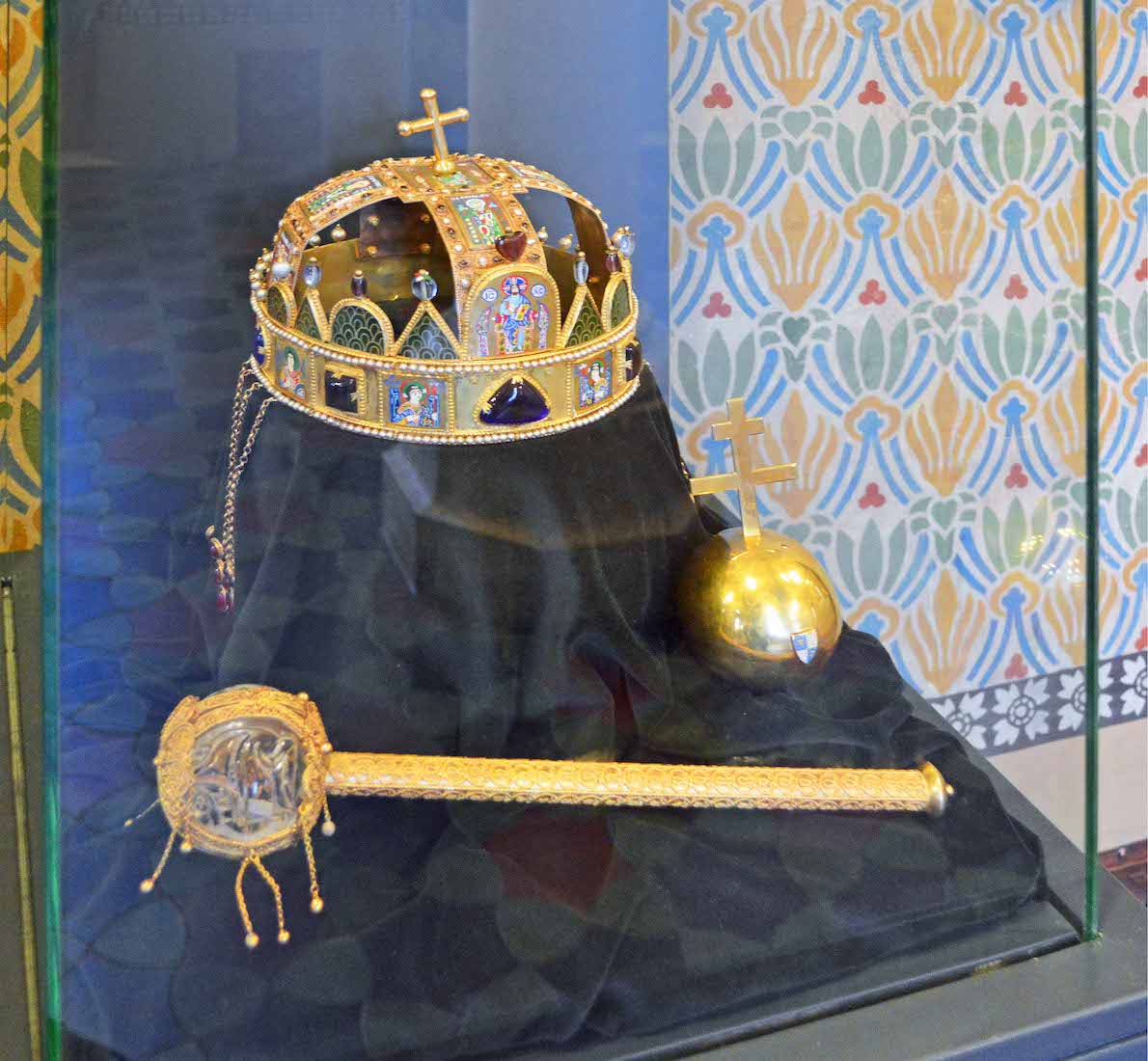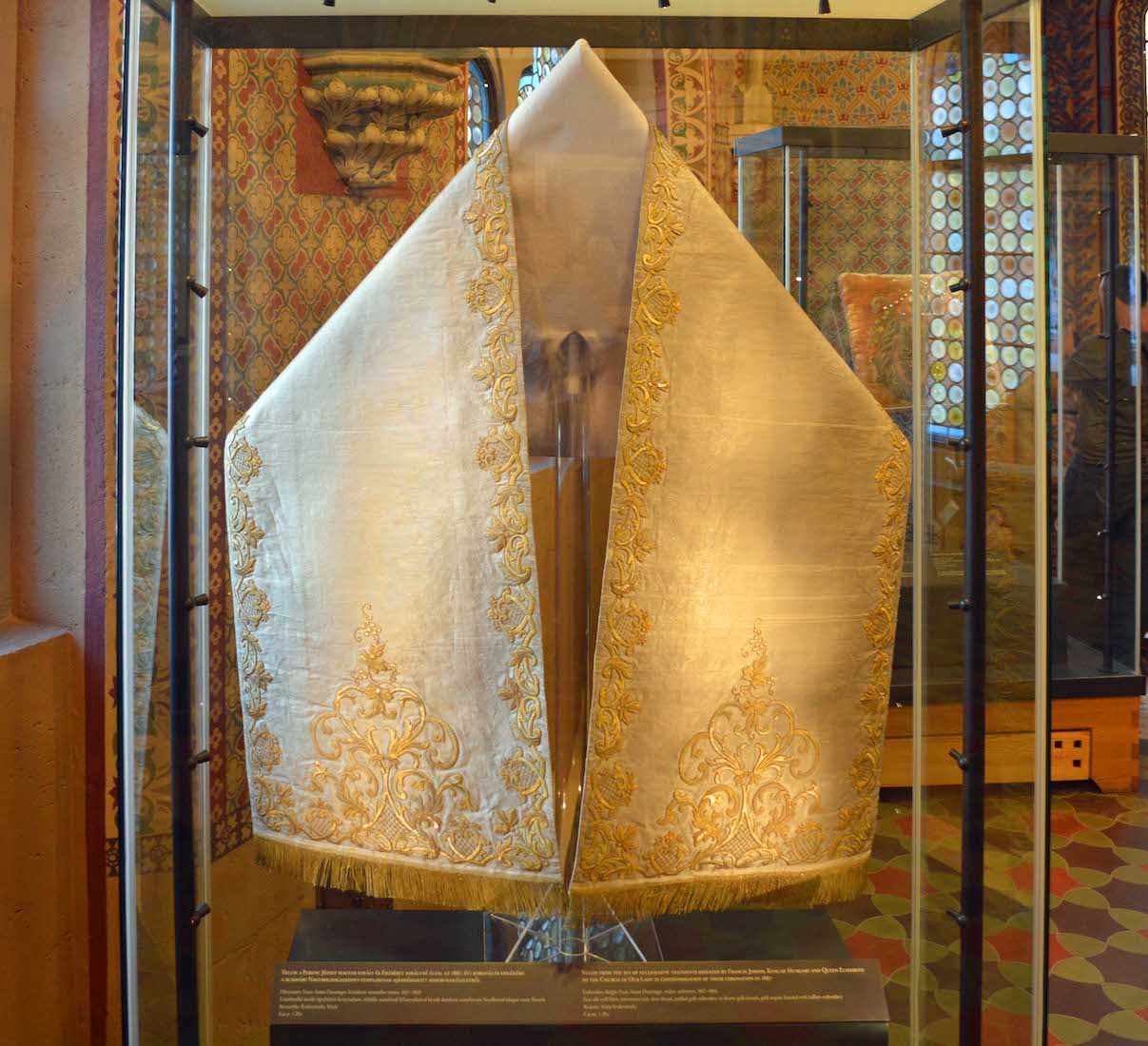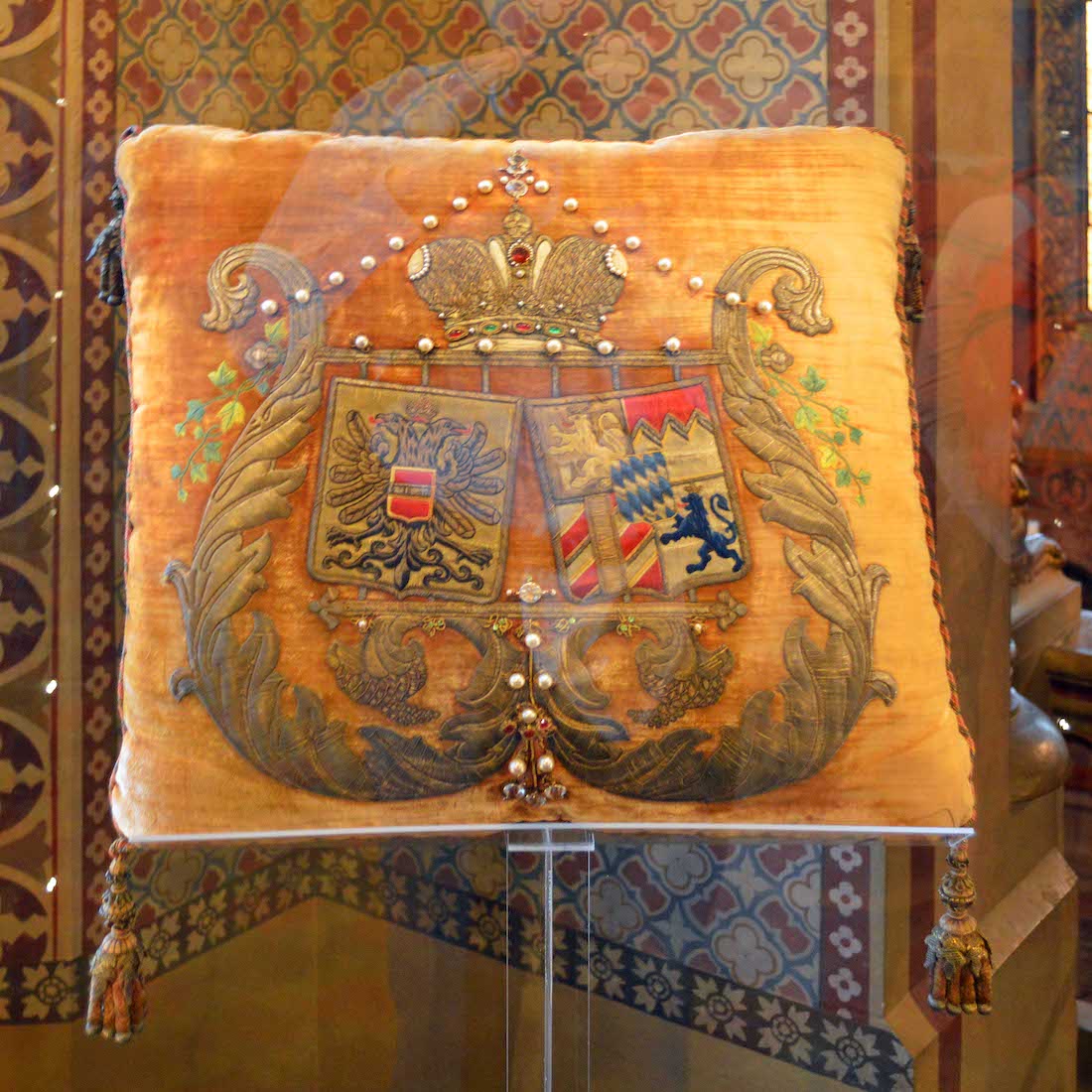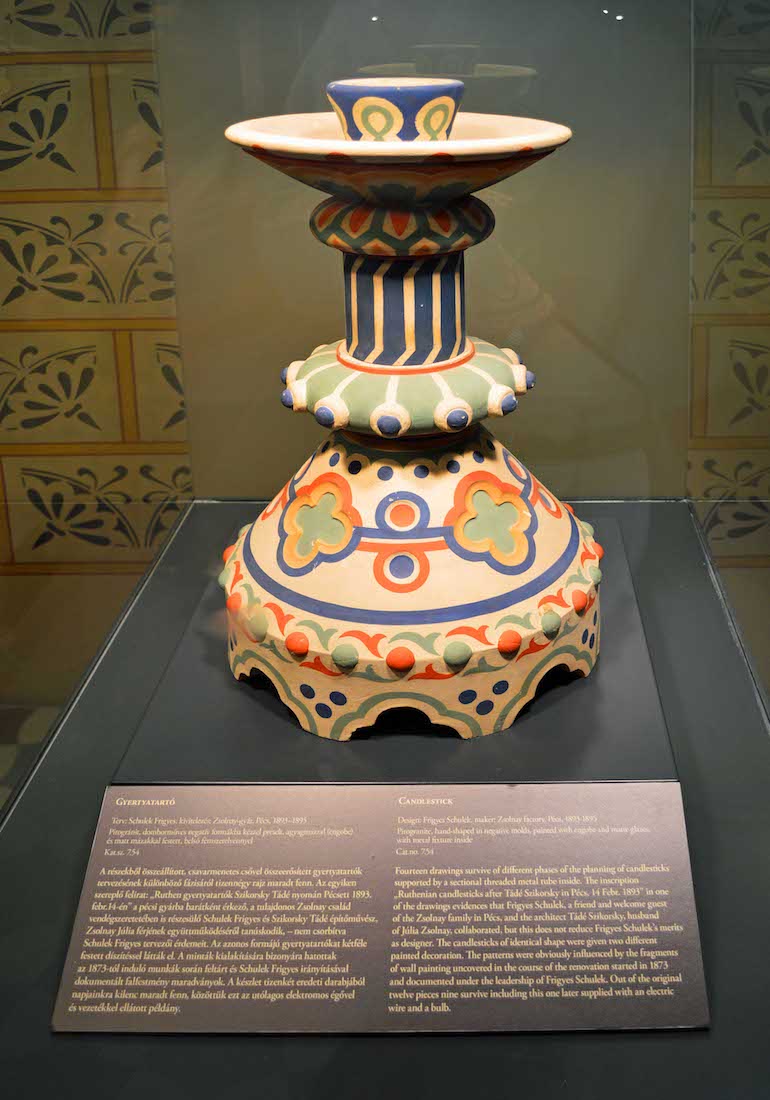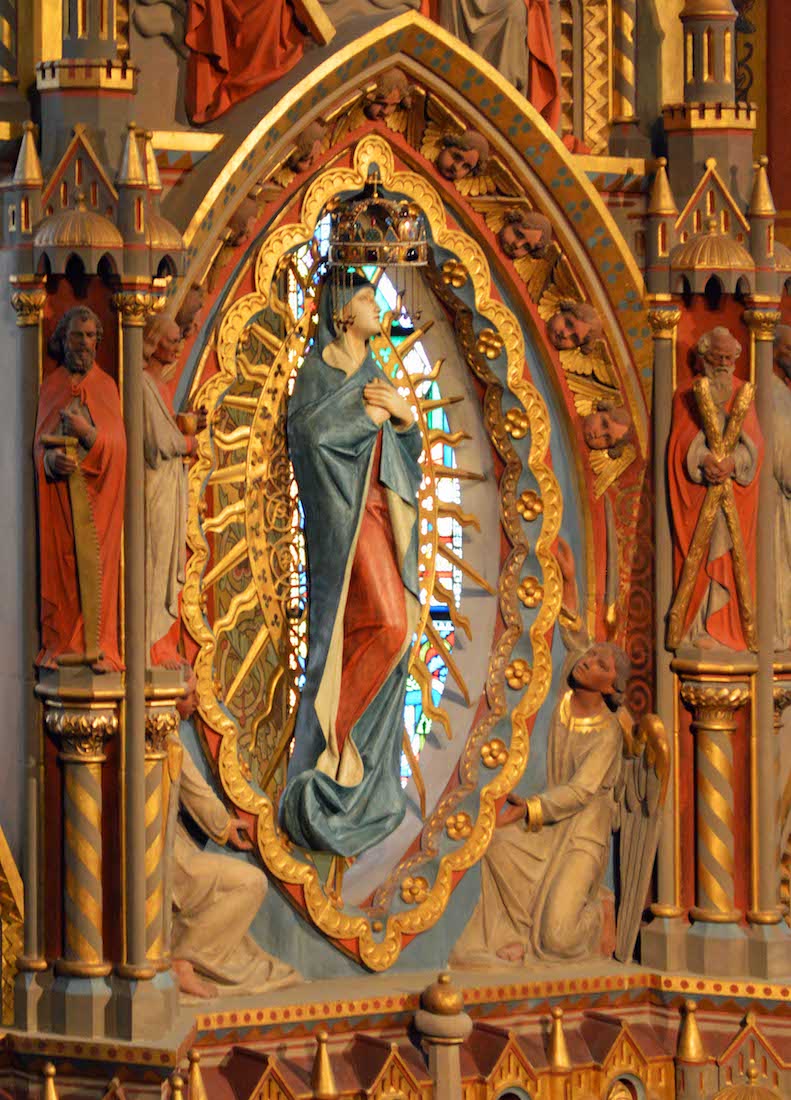
This figure of Mary hangs in front of a window depicting the Risen Christ. When the sun shines directly through the Christ window, there is a very special effect: Mary is dressed in the glory of her Son. PLAN
62. CRUCIFIX AND TABERNACLE
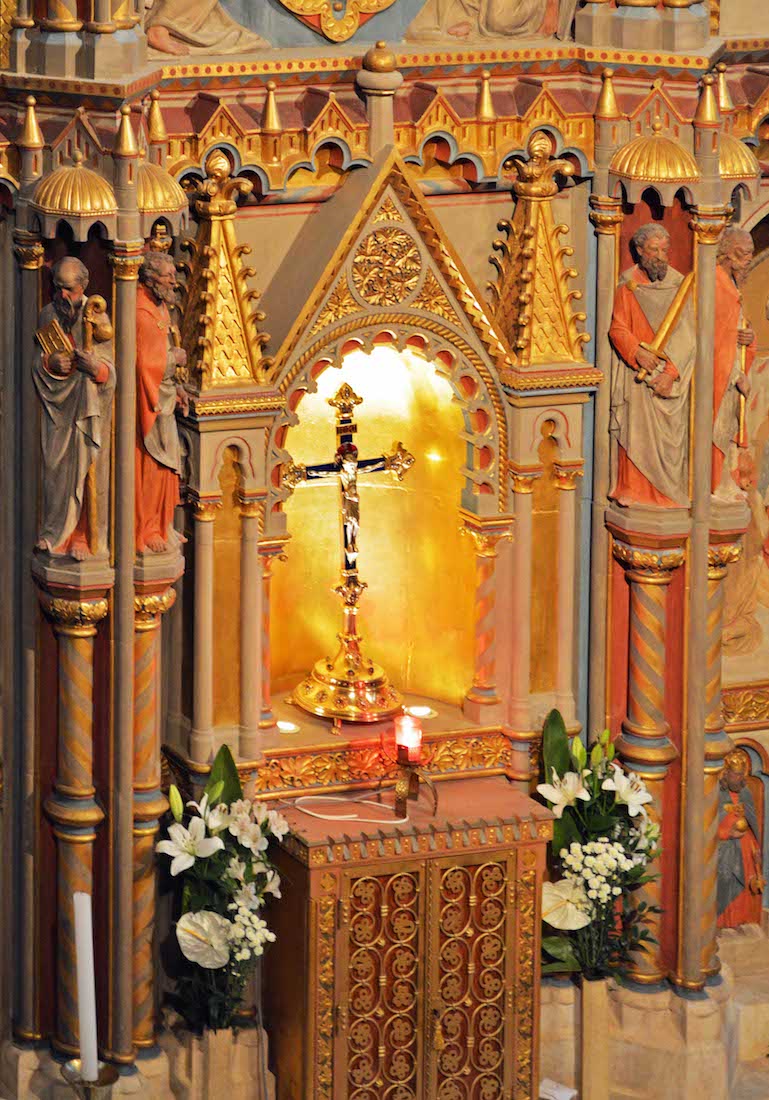
The tabernacle is where the blessed elements of the Eucharist are kept. The illuminated crucifix has central place, showing the centrality of Christ in faith and worship.
63. ROUND WINDOW
From our position in the North gallery we can look straight across the Church. Above the Chapel of the Holy Cross (which we have yet to explore) is this lovely pentagonal window.
64. CROSSING
The transepts meet the main axis of the Church in the crossing, which is where the nave altar sits. We shall descend now and cross the Church to explore the pulpit, the South transept, and the Chapel of the Holy Cross to the left of the transept.
65. CROSSING CEILING
The Crossing ceiling features the symbols of the Four Evangelists. We see (clockwise from the top): John (the eagle), Mark (the winged lion), Matthew (the angel) and Luke (the winged bull). [Church photo]
66. PULPIT AND CANOPY
The pulpit with its canopy stands just West of the Crossing on the South side. The canopy has the design of a small church, with Jesus, the Good Shepherd, standing atop the spire with a lamb across his shoulders. Looking up past the canopy we see again the interesting Crossing ceiling.
67. PULPIT
The pulpit is of restrained but elaborate design, displaying a number of colourful saintly figures.
68. PULPIT DETAIL
The actual identity of the pulpit figures escapes me, except that the central kingly figure carrying the Hungarian cross will be St Stephen. Even more unidentifiable heads can be seen peering out from the base.
70. CHAPEL OF THE HOLY CROSS
Our final chapel to investigate is the Chapel of the Holy Cross. The Church has had a relic of the Holy Cross since the Baroque era. Since a piece of Christ’s Cross, however small, is more precious than any other relic (whatever doubts surround its authenticity), it was given its own altar.
71. HOLY CROSS ALTAR
The altar shows Christ on the Cross with St Mary and St John standing close by. A version of Mary holding the body of Jesus (Piéta) is shown in the inset. The vault above representing heaven is the sole burst of light on the otherwise colourless scene. This completes our tour of the actual Church. If you wish to leave now, click here. Otherwise, we continue to the Church Treasury.
73. THREE RELICS
The relics exhibited here are from left: • the Holy Cross relic, with enamel pictures showing scenes from the Passion; • a second Holy Cross relic; • a reliquary with a relic of St Stephen Protomartyr.
74. FOUR RELICS
The four relics exhibited here are from left: • a relic of St Aloysius Gonzaga; • a relic of St John Nepomuk; • a relic of St Ignatius Loyola; • a relic of St Francis Xavier.
75. WALL OF CRESTS
After so many relics it is good to come to this colourful wall of crests, although it is unclear (to me) just what they signify.
76. CREST
Here is an example of one of the crests hanging on this wall. The text reads: ‘...Erosolymit Anno 1927 comes Eugenis Karatsonyt Bailli Delegatus extra ordinarius et minister plenipotentiarius ordinus sancti Joannish ...’ , which means ?
77. CROWN, SCEPTRE, ORB
These are replicas of the Holy Crown, Sceptre and Orb. The crown jewels were removed from Hungary in World War II and brought back in 1978. When the goldsmith made the replicas, he could only rely on published illustrations.
78. DECORATED VELLUM
Vellum from the ecclesiastic vestments, donated by Francis Joseph King of Hungary and Queen Elisabeth to the Church of our Lady, in commemoration of their coronation in 1867.
79. KNEELER CUSHION
This appears to be a Royal kneeler cushion.
80. CANDLESTICK
This candlestick was designed by Frigyes Schulek, and made by the Zsolnay factory, Pécs in 1893 – 1895. The text below gives details of its design and manufacture.


